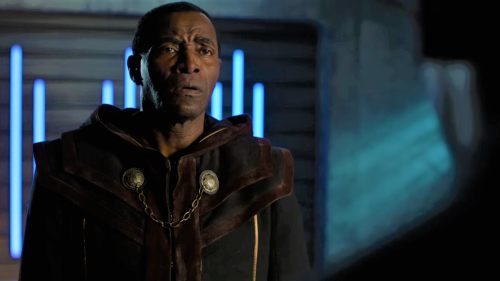Don’t Worry, Martin Scorsese Clarified His Marvel Comments
BMD has, for the most part, stayed out of the whole "Martin Scorsese VS Marvel" debate, largely because the debate itself is exceptionally stupid (in the same way that all reactionary internet debates are exceptionally stupid), but also because literally any amount of coverage would only serve to prolong that which we yearn for most: the end of the debate. Why throw fuel onto a fire you're already deeply annoyed by? It's only gonna get bigger and more annoying.
Today's a little different. Last night, Martin Scorsese - who, just as a reminder, is one of our greatest living filmmakers, a total mensch, and 77 years old next month - published an op-ed in the New York Times which seeks to clarify the initial point he was trying to make about Marvel movies (I'd argue that the point should've been glaringly obvious from the get-go, but then, that would assume the people screaming for Scorsese's blood also brought context and a passing familiarity with filmmaking history to the table; one cannot reasonably make such an assumption in 2019, the year where nuance goes to die), and it's probably worth turning our attentions towards.
The whole thing is well worth a read, but here's the part where Scorsese really takes it down to brass tacks:
"In the past 20 years, as we all know, the movie business has changed on all fronts. But the most ominous change has happened stealthily and under cover of night: the gradual but steady elimination of risk. Many films today are perfect products manufactured for immediate consumption. Many of them are well made by teams of talented individuals. All the same, they lack something essential to cinema: the unifying vision of an individual artist. Because, of course, the individual artist is the riskiest factor of all.
I’m certainly not implying that movies should be a subsidized art form, or that they ever were. When the Hollywood studio system was still alive and well, the tension between the artists and the people who ran the business was constant and intense, but it was a productive tension that gave us some of the greatest films ever made — in the words of Bob Dylan, the best of them were “heroic and visionary.”
Today, that tension is gone, and there are some in the business with absolute indifference to the very question of art and an attitude toward the history of cinema that is both dismissive and proprietary — a lethal combination. The situation, sadly, is that we now have two separate fields: There’s worldwide audiovisual entertainment, and there’s cinema. They still overlap from time to time, but that’s becoming increasingly rare. And I fear that the financial dominance of one is being used to marginalize and even belittle the existence of the other."
Yes, as it turns out, the issue isn't that Martin Scorsese doesn't "like" Marvel movies, or that he's "jealous" of their success, or that he wants to personally come to your home and destroy your Blu-ray collection (and maybe your comic book collection, too, just for good measure). Nope, turns out that Martin Scorsese's saying what a lot of people have been saying Martin Scorsese was saying all along: that the rise in franchise filmmaking is an inherent threat to smaller films, films that might be considered "risky", and/or to any filmmaker who isn't interested in producing content designed for general audiences. In that regard, Scorsese is not incorrect. In fact, he's making a fairly important point.
This will, of course, do absolutely nothing to assuage all the wailing and teeth-gnashing, but on the off-chance that you missed Scorsese's op-ed (here's that link, one more time) or on the off-chance that you, the gentle BMD readers of the world, are looking for a comments section in which to discuss the in's and out's of this brouhaha, I thought the above was probably worth sharing.
Please feel free to weigh in below, but as a general reminder: do be chill with one another.



